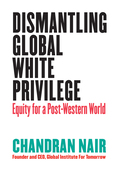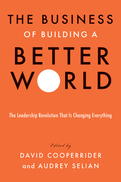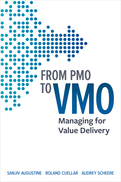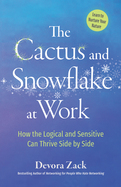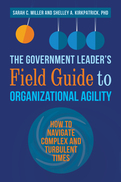Search Results: ""
Results 1159-1164 of 1358
White privilege damages and distorts societies around the world, not just in the United States. This book exposes its pervasive global reach and creates a new space for discourse on worldwide racial equality.
As Chandran Nair shows in this uncompromising new book, a belief in the innate superiority of White people and Western culture, once the driving force behind imperialism, is now woven into the very fabric of globalization. It is so insidious that, as Nair points out, even many non-White people have internalized it, judging themselves by an alien standard. It has no rival in terms of longevity, global reach, harm done, and continuing subversion of other cultures and societies.
Nair takes a comprehensive look at the destructive influence of global White privilege. He examines its impact on geopolitics, the reframing of world history, and international business practices. In the soft-power spheres of White privilege—entertainment, the news media, sports, and fashion—he offers example after example of how White cultural products remain the aspirational standard. Even environmentalism has been corrupted, dominated by a White savior mentality whereby technologies and practices built in the West will save the supposedly underdeveloped, poorly governed, and polluted non-Western world.
For all these areas, Nair gives specific suggestions for breaking the power of White privilege. It must be dismantled—not just because it is an injustice but also because we will be creating a post-Western world that has less conflict, is more united, and is better able to respond to the existential challenges facing all of us.
As Chandran Nair shows in this uncompromising new book, a belief in the innate superiority of White people and Western culture, once the driving force behind imperialism, is now woven into the very fabric of globalization. It is so insidious that, as Nair points out, even many non-White people have internalized it, judging themselves by an alien standard. It has no rival in terms of longevity, global reach, harm done, and continuing subversion of other cultures and societies.
Nair takes a comprehensive look at the destructive influence of global White privilege. He examines its impact on geopolitics, the reframing of world history, and international business practices. In the soft-power spheres of White privilege—entertainment, the news media, sports, and fashion—he offers example after example of how White cultural products remain the aspirational standard. Even environmentalism has been corrupted, dominated by a White savior mentality whereby technologies and practices built in the West will save the supposedly underdeveloped, poorly governed, and polluted non-Western world.
For all these areas, Nair gives specific suggestions for breaking the power of White privilege. It must be dismantled—not just because it is an injustice but also because we will be creating a post-Western world that has less conflict, is more united, and is better able to respond to the existential challenges facing all of us.
Twenty-nine leading scholars and executives provide a visionary look at the future of business, propelling past damaging industrial-age values to uncover the key ingredients of humanistic, ecologically sustainable, and intergenerational prosperity.Twenty-nine leading scholars and executives provide a visionary look at the future of business, propelling past damaging industrial-age values to uncover the key ingredients of humanistic, ecologically sustainable, and intergenerational prosperity.
Through the exploration of robust cases and stories packed with deep insight and vital science, this extraordinary collection explores how we can adapt our notions of value, markets, and models of cooperation and collective action to create a world where economies and businesses excel, all people thrive, and nature flourishes.
In part I, The Business of Business Is Betterment, the contributors show how enterprises today are further developing-and even taking a quantum leap beyond-the multistakeholder logic of shared value creation. Part II, Net Positive = Innovation's New Frontier, is focused on what companies can and are doing to move away from doing no harm to playing an active role in solving environmental, social, and economic problems. The final section, Ultimate Advantage: A Leadership Revolution That Is Changing Everything, looks at new leadership paradigms-characterized by unexpected qualities like virtue, love, compassion, and connection-that are crucial to creating engaged, empowered, innovative, and out-performing enterprises.
This book is designed to galvanize change and unite a global community of inquiry and action. It establishes the conceptual cornerstones for a new kind of business practice that will lead the way to an equitable, sustainable, and flourishing future.
Through the exploration of robust cases and stories packed with deep insight and vital science, this extraordinary collection explores how we can adapt our notions of value, markets, and models of cooperation and collective action to create a world where economies and businesses excel, all people thrive, and nature flourishes.
In part I, The Business of Business Is Betterment, the contributors show how enterprises today are further developing-and even taking a quantum leap beyond-the multistakeholder logic of shared value creation. Part II, Net Positive = Innovation's New Frontier, is focused on what companies can and are doing to move away from doing no harm to playing an active role in solving environmental, social, and economic problems. The final section, Ultimate Advantage: A Leadership Revolution That Is Changing Everything, looks at new leadership paradigms-characterized by unexpected qualities like virtue, love, compassion, and connection-that are crucial to creating engaged, empowered, innovative, and out-performing enterprises.
This book is designed to galvanize change and unite a global community of inquiry and action. It establishes the conceptual cornerstones for a new kind of business practice that will lead the way to an equitable, sustainable, and flourishing future.
From PMO to VMO
2021
“By the end of this book, you will understand what is valuable, how to measure value, and how to optimize the flow of value-from idea to your customer."
-Evan Leybourn, co-founder and CEO, Business Agility Institute
"By the end of this book, you will understand what is valuable, how to measure value, and how to optimize the flow of valuefrom idea to your customer." Evan Leybourn, co-founder and CEO, Business Agility Institute Agile methods have brought about dramatic changes in how organizations manage and deliver not only IT services, but their entire product and service value streams. As legacy organizations transition to newer, end-to-end agile operating models, the Project Management Office (PMO) needs to redesign its mission and operation to be more in line with these modern ways of working. That requires being more customer-focused and value-adding, and less hidebound, bureaucratic and tied to antiquated processes and mindsets. Visionary leaders are transitioning into enablers of this change, and maximizing value through the entire organization. Middle management, including program and project managers (PMs), are racing to maximize their professional relevancy in this new world. This book defines the role of the agile value management office (VMO), using case studies and a clear road map to help PMs visualize and implement a new path where middle management and the VMO are valued leaders in the age of business agility.
-Evan Leybourn, co-founder and CEO, Business Agility Institute
"By the end of this book, you will understand what is valuable, how to measure value, and how to optimize the flow of valuefrom idea to your customer." Evan Leybourn, co-founder and CEO, Business Agility Institute Agile methods have brought about dramatic changes in how organizations manage and deliver not only IT services, but their entire product and service value streams. As legacy organizations transition to newer, end-to-end agile operating models, the Project Management Office (PMO) needs to redesign its mission and operation to be more in line with these modern ways of working. That requires being more customer-focused and value-adding, and less hidebound, bureaucratic and tied to antiquated processes and mindsets. Visionary leaders are transitioning into enablers of this change, and maximizing value through the entire organization. Middle management, including program and project managers (PMs), are racing to maximize their professional relevancy in this new world. This book defines the role of the agile value management office (VMO), using case studies and a clear road map to help PMs visualize and implement a new path where middle management and the VMO are valued leaders in the age of business agility.
This hilarious and profound workplace guide proves the rigorously rational and the supremely sympathetic can meet in the middle and merge their strengths. Readers will discover how blending with their opposite opens the pathway to being their truest selves.
Carl Jung's personality typology introduced the distinction that Feelers (who lead with their hearts) put more weight on personal concerns and the people involved, and Thinkers (who lead with their heads) are guided by objective principles and impartial facts. This book calls them Cacti and Snowflakes—each singularly transcendent. But can people with such fundamentally different ways of making sense of and engaging with the world work together?
Yes, says Devora Zack! The key is not to try to change each other. Zack says we can directly control only three things: what we say, what we think, and what we do. The best use of our energy is to focus on our own reactions and perceptions rather than try to “fix” other people.
This book includes an assessment so readers can learn where they are on the Thinker/Feeler spectrum—and because it's a spectrum, readers might well be a snowcactus or a cactusflake. Then Zack helps them figure out where other people might be, guiding them through a myriad of modes of communication and motivation based on personality type. She includes real-life scenarios that show how to nurture one's nature while successfully connecting with those on the other side.
As always, Zack fearlessly and entertainingly dispels myths, squashes stereotypes, and transforms perceived liabilities into strengths. And she once again affirms that, like chocolate and peanut butter, we are better together.
Carl Jung's personality typology introduced the distinction that Feelers (who lead with their hearts) put more weight on personal concerns and the people involved, and Thinkers (who lead with their heads) are guided by objective principles and impartial facts. This book calls them Cacti and Snowflakes—each singularly transcendent. But can people with such fundamentally different ways of making sense of and engaging with the world work together?
Yes, says Devora Zack! The key is not to try to change each other. Zack says we can directly control only three things: what we say, what we think, and what we do. The best use of our energy is to focus on our own reactions and perceptions rather than try to “fix” other people.
This book includes an assessment so readers can learn where they are on the Thinker/Feeler spectrum—and because it's a spectrum, readers might well be a snowcactus or a cactusflake. Then Zack helps them figure out where other people might be, guiding them through a myriad of modes of communication and motivation based on personality type. She includes real-life scenarios that show how to nurture one's nature while successfully connecting with those on the other side.
As always, Zack fearlessly and entertainingly dispels myths, squashes stereotypes, and transforms perceived liabilities into strengths. And she once again affirms that, like chocolate and peanut butter, we are better together.
This is the first book to fully adapt the principles of agility for government leaders who want to make their organizations more effective and nimble while better serving their public mission.
This practical resource will equip government leaders at all levels with evidence-based, hands-on guidance for transforming their organizations, enabling them to better serve the public and their customers. While many books focus on organizational agility for leaders of for-profit companies, this is the first one tailored to the unique requirements government leaders face. They must find a way to accomplish their mission while navigating constant change.
Government leaders at all levels must maneuver their organizations through new, often complex challenges, ranging from new laws that impact their agencies, new technologies, changes in leadership, and unexpected events. By explaining how to manage and organize work differently, this guide will help leaders weather the storm of that constant change so they can help their agencies realize their missions and serve the public interest.
This practical resource will equip government leaders at all levels with evidence-based, hands-on guidance for transforming their organizations, enabling them to better serve the public and their customers. While many books focus on organizational agility for leaders of for-profit companies, this is the first one tailored to the unique requirements government leaders face. They must find a way to accomplish their mission while navigating constant change.
Government leaders at all levels must maneuver their organizations through new, often complex challenges, ranging from new laws that impact their agencies, new technologies, changes in leadership, and unexpected events. By explaining how to manage and organize work differently, this guide will help leaders weather the storm of that constant change so they can help their agencies realize their missions and serve the public interest.
Majora Carter shows how brain drain cripples low-status communities and maps out a development strategy focused on talent retention to help them break out of economic stagnation.
"My musical, In the Heights, explores issues of community, gentrification, identity and home, and the question: Are happy endings only ones that involve getting out of your neighborhood to achieve your dreams? In her refreshing new book, Majora Carter writes about these issues with great insight and clarity, asking us to re-examine our notions of what community development is and how we invest in the futures of our hometowns. This is an exciting conversation worth joining.”
—Lin-Manuel Miranda
How can we solve the problem of persistent poverty in low-status communities? Majora Carter argues that these areas need a talent-retention strategy, just like the ones companies have. Retaining homegrown talent is a critical part of creating a strong local economy that can resist gentrification. But too many people born in low-status communities measure their success by how far away from them they can get.
Carter, who could have been one of them, returned to the South Bronx and devised a development strategy rooted in the conviction that these communities have the resources within themselves to succeed. She advocates measures such as
• Building mixed-income instead of exclusively low-income housing to create a diverse and robust economic ecosystem
• Showing homeowners how to maximize the long-term value of their property so they won't succumb to quick-cash offers from speculators
• Keeping people and dollars in the community by developing vibrant “third spaces”—restaurants, bookstores, and places like Carter's own Boogie Down Grind Cafe
This is a profoundly personal book. Carter writes about her brother's murder, how turning a local dumping ground into an award-winning park opened her eyes to the hidden potential in her community, her struggles as a woman of color confronting the “male and pale” real estate and nonprofit establishments, and much more. It is a powerful rethinking of poverty, economic development, and the meaning of success.
"My musical, In the Heights, explores issues of community, gentrification, identity and home, and the question: Are happy endings only ones that involve getting out of your neighborhood to achieve your dreams? In her refreshing new book, Majora Carter writes about these issues with great insight and clarity, asking us to re-examine our notions of what community development is and how we invest in the futures of our hometowns. This is an exciting conversation worth joining.”
—Lin-Manuel Miranda
How can we solve the problem of persistent poverty in low-status communities? Majora Carter argues that these areas need a talent-retention strategy, just like the ones companies have. Retaining homegrown talent is a critical part of creating a strong local economy that can resist gentrification. But too many people born in low-status communities measure their success by how far away from them they can get.
Carter, who could have been one of them, returned to the South Bronx and devised a development strategy rooted in the conviction that these communities have the resources within themselves to succeed. She advocates measures such as
• Building mixed-income instead of exclusively low-income housing to create a diverse and robust economic ecosystem
• Showing homeowners how to maximize the long-term value of their property so they won't succumb to quick-cash offers from speculators
• Keeping people and dollars in the community by developing vibrant “third spaces”—restaurants, bookstores, and places like Carter's own Boogie Down Grind Cafe
This is a profoundly personal book. Carter writes about her brother's murder, how turning a local dumping ground into an award-winning park opened her eyes to the hidden potential in her community, her struggles as a woman of color confronting the “male and pale” real estate and nonprofit establishments, and much more. It is a powerful rethinking of poverty, economic development, and the meaning of success.


